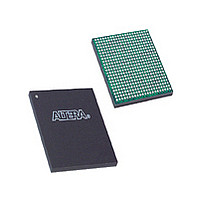EP3C16F484A7N Altera, EP3C16F484A7N Datasheet - Page 213

EP3C16F484A7N
Manufacturer Part Number
EP3C16F484A7N
Description
Cyclone III
Manufacturer
Altera
Datasheet
1.EP3C16F484A7N.pdf
(274 pages)
Specifications of EP3C16F484A7N
Family Name
Cyclone III
Number Of Logic Blocks/elements
15408
# I/os (max)
346
Frequency (max)
437.5MHz
Process Technology
65nm
Operating Supply Voltage (typ)
1.2V
Logic Cells
15408
Ram Bits
516096
Operating Supply Voltage (min)
1.15V
Operating Supply Voltage (max)
1.25V
Operating Temp Range
-40C to 125C
Operating Temperature Classification
Automotive
Mounting
Surface Mount
Pin Count
484
Package Type
FBGA
Lead Free Status / Rohs Status
Compliant
Available stocks
Company
Part Number
Manufacturer
Quantity
Price
Company:
Part Number:
EP3C16F484A7N
Manufacturer:
ALTERA
Quantity:
717
Part Number:
EP3C16F484A7N
Manufacturer:
ALTERA/阿尔特拉
Quantity:
20 000
- Current page: 213 of 274
- Download datasheet (6Mb)
Chapter 9: Configuration, Design Security, and Remote System Upgrades in the Cyclone III Device Family
Configuration Features
Table 9–16. Dedicated Configuration Pin Connections During JTAG Configuration
© December 2009
Signal
nCE
nCEO
MSEL[3..0]
nCONFIG
nSTATUS
CONF_DONE
DCLK
Altera Corporation
On all Cyclone III device family in the chain, nCE must be driven low by connecting it to ground, pulling it
low using a resistor or driving it by some control circuitry. For devices that are also in multi-device AS, AP,
PS, or FPP configuration chains, the nCE pins must be connected to GND during JTAG configuration or
JTAG configured in the same order as the configuration chain.
On all Cyclone III device family in the chain, nCEO is left floating or connected to the nCE of the next
device.
These pins must not be left floating. These pins support whichever non-JTAG configuration that is used in
production. If you only use JTAG configuration, tie these pins to GND.
Driven high by connecting to the V
resistor or driven high by some control circuitry.
Pull to the V
multiple devices in the same JTAG chain, each nSTATUS pin must be pulled up to the V
Pull to the V
multiple devices in the same JTAG chain, each CONF_DONE pin must be pulled up to the V
the bank in which the pin resides individually. CONF_DONE going high at the end of JTAG configuration
indicates successful configuration.
Must not be left floating. Drive low or high, whichever is more convenient on your board.
When programming a JTAG device chain, one JTAG-compatible header is connected
to several devices. The number of devices in the JTAG chain is limited only by the
drive capability of the download cable. When four or more devices are connected in a
JTAG chain, Altera recommends buffering the TCK, TDI, and TMS pins with an
on-board buffer.
JTAG-chain device programming is ideal when the system contains multiple devices,
or when testing your system using JTAG BST circuitry.
show a multi-device JTAG configuration.
For the device V
maintain a maximum AC voltage of 4.1 V. Because JTAG pins do not have the internal
PCI clamping diodes to prevent voltage overshoot when using V
3.3 V, you must power up the V
V
For device V
the download cable with the supply from V
CCA
.
CCIO
CCIO
supply of the bank in which the pin resides using a 10-kΩ resistor. When configuring
supply of the bank in which the pin resides using a 10-kΩ resistor. When configuring
CCIO
of 1.2, 1.5, and 1.8 V, refer to
CCIO
of 2.5, 3.0, and 3.3 V, refer to
CCIO
supply of the bank in which the pin resides and pulling up using a
CC
of the download cable with a 2.5-V supply from
Description
CCIO
Figure
.
Figure
9–27. You can power up the V
Figure 9–26
9–26. All I/O inputs must
Cyclone III Device Handbook, Volume 1
CCIO
and
of 2.5, 3.0, and
CCIO
Figure 9–27
CCIO
individually.
supply of
CC
9–53
of
Related parts for EP3C16F484A7N
Image
Part Number
Description
Manufacturer
Datasheet
Request
R

Part Number:
Description:
CYCLONE II STARTER KIT EP2C20N
Manufacturer:
Altera
Datasheet:

Part Number:
Description:
CPLD, EP610 Family, ECMOS Process, 300 Gates, 16 Macro Cells, 16 Reg., 16 User I/Os, 5V Supply, 35 Speed Grade, 24DIP
Manufacturer:
Altera Corporation
Datasheet:

Part Number:
Description:
CPLD, EP610 Family, ECMOS Process, 300 Gates, 16 Macro Cells, 16 Reg., 16 User I/Os, 5V Supply, 15 Speed Grade, 24DIP
Manufacturer:
Altera Corporation
Datasheet:

Part Number:
Description:
Manufacturer:
Altera Corporation
Datasheet:

Part Number:
Description:
CPLD, EP610 Family, ECMOS Process, 300 Gates, 16 Macro Cells, 16 Reg., 16 User I/Os, 5V Supply, 30 Speed Grade, 24DIP
Manufacturer:
Altera Corporation
Datasheet:

Part Number:
Description:
High-performance, low-power erasable programmable logic devices with 8 macrocells, 10ns
Manufacturer:
Altera Corporation
Datasheet:

Part Number:
Description:
High-performance, low-power erasable programmable logic devices with 8 macrocells, 7ns
Manufacturer:
Altera Corporation
Datasheet:

Part Number:
Description:
Classic EPLD
Manufacturer:
Altera Corporation
Datasheet:

Part Number:
Description:
High-performance, low-power erasable programmable logic devices with 8 macrocells, 10ns
Manufacturer:
Altera Corporation
Datasheet:

Part Number:
Description:
Manufacturer:
Altera Corporation
Datasheet:

Part Number:
Description:
Manufacturer:
Altera Corporation
Datasheet:

Part Number:
Description:
Manufacturer:
Altera Corporation
Datasheet:

Part Number:
Description:
CPLD, EP610 Family, ECMOS Process, 300 Gates, 16 Macro Cells, 16 Reg., 16 User I/Os, 5V Supply, 25 Speed Grade, 24DIP
Manufacturer:
Altera Corporation
Datasheet:












